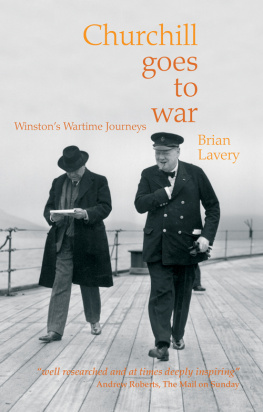ZEN WAR STORIES
Following the critically acclaimed Zen at War (1997), Brian Daizen Victoria here explores the intimate relationship between Japanese institutional Buddhism and militarism during the Second World War.
Victoria reveals for the first time, through examination of the wartime writings of the Japanese military itself, that the Zen schools view of life and death was deliberately incorporated into the militarys programme of spiritual education in order to develop a fanatical military spirit in both soldiers and civilians. Furthermore, it is shown that D. T. Suzuki, the most famous exponent of Zen in the West, was a wartime proponent of this Zen-inspired viewpoint which enabled Japanese soldiers to leave for the battlefield already resigned to death. Victoria takes us on to the naval battlefield in the company of warrior-monk and Rinzai Zen Master Nakajima Genj. We view the war in China through the eyes of a Buddhist military chaplain. The book also examines the relationship to Buddhism of Japans seven class-A war criminals, hung by the Tokyo War Crimes Tribunal in 1948.
A highly controversial study, this book will be of interest not only to those studying the history of the period, but also to anyone concerned with the perennial question of the proper relationship between religion and state.
Brian Daizen Victoria is a Senior Lecturer at the Centre for Asian Studies, the University of Adelaide.
THE ROUTLEDGECURZON CRITICAL STUDIES IN BUDDHISM SERIES
General Editors: Charles S. Prebish and Damien Keown
The RoutledgeCurzon Critical Studies in Buddhism Series is a comprehensive study of the Buddhist tradition. The series explores this complex and extensive tradition from a variety of perspectives, using a range of different methodologies.
The Series is diverse in its focus, including historical studies, textual translations and commentaries, sociological investigations, bibliographic studies, and considerations of religious practice as an expression of Buddhisms integral religiosity. It also presents materials on modern intellectual historical studies, including the role of Buddhist thought and scholarship in a contemporary, critical context and in the light of current social issues. The series is expansive and imaginative in scope, spanning more than two and a half millennia of Buddhist history. It is receptive to all research works that inform and advance our knowledge and understanding of the Buddhist tradition.
THE REFLEXIVE NATURE OF AWARENESS
Paul Williams
BUDDHISM AND HUMAN RIGHTS
Edited by Damien Keown, Charles S. Prebish, Wayne Husted
ALTRUISM AND REALITY
Paul Williams
WOMEN IN THE FOOTSTEPS OF THE BUDDHA
Kathryn R. Blackstone
THE RESONANCE OF EMPTINESS
Gay Watson
IMAGING WISDOM
Jacob N. Kinnard
AMERICAN BUDDHISM
Edited by Duncan Ryuken Williams and Christopher Queen
PAIN AND ITS ENDING
Carol S. Anderson
THE SOUND OF LIBERATING TRUTH
Edited by Sallie B. King and Paul O. Ingram
BUDDHIST THEOLOGY
Edited by Roger R. Jackson and John J. Makransky
EMPTINESS APPRAISED
David F. Burton
THE GLORIOUS DEEDS OF PURNA
Joel Tatelman
CONTEMPORARY BUDDHIST ETHICS
Edited by Damien Keown
INNOVATIVE BUDDHIST WOMEN
Edited by Karma Lekshe Tsomo
TEACHING BUDDHISM IN THE WEST
Edited by V.S. Hori, R.P. Hayes and J.M. Shields
EMPTY VISION
David L. McMahan
SELF, REALITY AND REASON IN TIBETAN PHILOSOPHY
Thupten Jinpa
BUDDHIST PHENOMENOLOGY
Dan Lusthaus
ZEN WAR STORIES
Brian Daizen Victoria

by RoutledgeCurzon
2 Park Square, Milton Park, Abingdon, Oxon, OX 14 4RN
Simultaneously published in the USA and Canada
by RoutledgeCurzon
711 Third Avenue, New York, NY 10017
Reprinted 2004
Transferred to Digital Printing 2005
RoutledgeCurzon is an imprint of the Taylor & Francis Group
2003 Brian Daizen Victoria
Typeset in Goudy by LaserScript Ltd, Mitcham, Surrey
All rights reserved. No part of this book may be reprinted or
reproduced or utilised in any form or by any electronic,
mechanical, or other means, now known or hereafter invented,
including photocopying and recording, or in any
information storage or retrieval system, without permission in
writing from the publishers.
The publisher makes no representation, express or implied, with regard
to the accuracy of the information contained in this book and cannot
accept any legal responsibility or liability for any errors or
omissions that may be made.
British Library Cataloguing in Publication Data
A catalogue record for this book is available from the British Library
Library of Congress Cataloging in Publication Data
A catalog record for this book has been requested
ISBN 0700715800 (hbk)
ISBN 0700715819 (pbk)
DEDICATED TO ALL THOSE
WHOSE LIVES WERE STOLEN FROM THEM
IN THE NAME OF HOLY WAR
CONTENTS
ILLUSTRATIONS
PREFACE
In late 1997 I published a book, Zen at War, that sent shock waves throughout Zen communities in the West, for it demonstrated that wartime Japanese Zen masters, almost to a man, had been fervent supporters of Japanese militarism. Moreover, these masters claimed the Buddha Dharma was itself synonymous with that militarism. What was especially disconcerting to some readers was the fact that many of those Japanese Zen masters who first introduced Zen to the West, especially in the postwar era, turned out to have been some of the strongest proponents of Japanese militarism, cloaking their support in the guise of such phrases as the unity of Zen and the sword.
I remember being deeply moved by one reader whose pained reaction was posted on the Internet. He said simply, What the hell went wrong? He went on to add that if my book had any failing, it was that while I had done a good job in revealing the wartime deeds and acts of Japans leading Zen figures, I had failed to interpret or explain what it all meant within the context of Buddhism as a whole; that is to say, is Zen, if not Buddhism, a totalitarian or fascist faith?
This book is meant to address, at least to some degree, the question of what went wrong. However, rather than using the survey approach that characterized my earlier book, each chapter in the present volume focuses on discrete events or personalities. Any disjunction between chapters resulting from this approach will hopefully be compensated for by the opportunity to take a more in-depth look at the material. In any event, I have tried to include sufficient background information in each chapter so that the reader will find it unnecessary to have read Zen at War in order to make sense of what is presented here: each book stands by itself, although, taken together, they give a much broader and deeper picture than either of them does alone.
Approach
I caution readers that this book, especially its first part, is not intended as a description of the nature of Zen (or Buddhism as a whole) in any theoretical or abstract sense. Rather, it describes what a number of prominent Japanese Zen leaders believed or interpreted Zen to be, primarily in the 1930s and 1940s. On the other hand, material in the second part has a broader focus, showing that Buddhist support for Japanese militarism was by no means limited to the Zen school alone.












